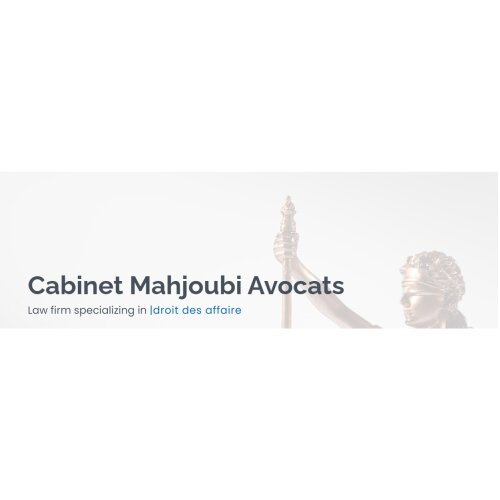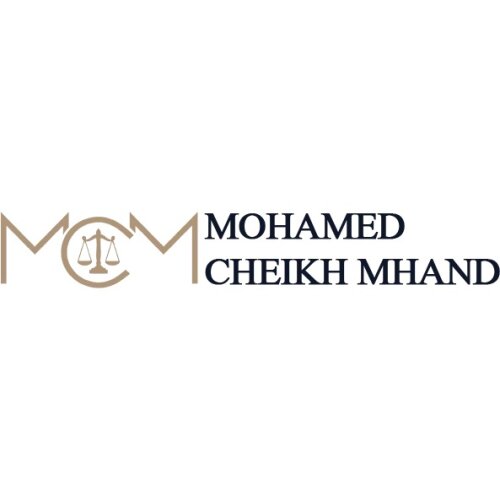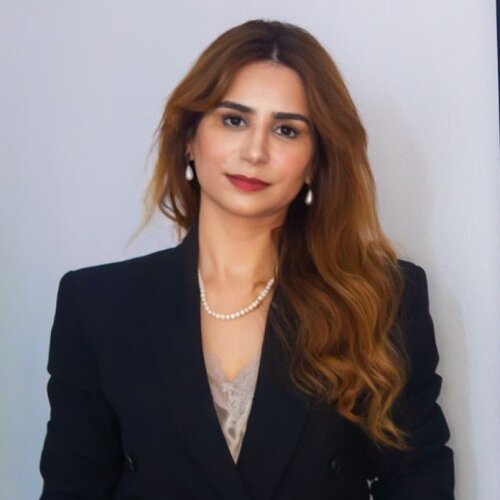Best Family Lawyers in Tangier
Share your needs with us, get contacted by law firms.
Free. Takes 2 min.
Free Guide to Hiring a Family Lawyer
List of the best lawyers in Tangier, Morocco
About Family Law in Tangier, Morocco
Family law in Tangier, Morocco covers a wide range of legal issues related to marriage, divorce, child custody, adoption, and more. It is important to understand the local laws and regulations governing family matters in order to protect your rights and interests.
Why You May Need a Lawyer
There are various situations where you may require legal assistance in family matters, such as divorce proceedings, child custody disputes, inheritance issues, or drafting a prenuptial agreement. A lawyer can provide guidance, represent you in court, and ensure that your legal rights are protected.
Local Laws Overview
In Tangier, Morocco, family law is based on Islamic principles and the Moroccan Family Code. Some key aspects of local laws include the requirement of a marriage contract, the right to polygamy for men with conditions, the recognition of Sharia law for family matters, and the importance of family unity and stability.
Frequently Asked Questions
Q: How is marriage regulated in Tangier, Morocco?
A: Marriage is regulated by the Moroccan Family Code, which requires a marriage contract signed by both parties and witnesses. Polygamy is allowed under certain conditions.
Q: What are the grounds for divorce in Tangier, Morocco?
A: Divorce can be granted on various grounds, including mutual consent, irretrievable breakdown of marriage, or fault-based reasons such as adultery or abuse.
Q: How is child custody determined in Tangier, Morocco?
A: Child custody is determined based on the best interests of the child, taking into consideration factors such as parental care abilities, financial stability, and the child's preferences if they are old enough.
Q: Are prenuptial agreements recognized in Tangier, Morocco?
A: Prenuptial agreements are recognized in Tangier, Morocco, and can be used to outline the division of assets and financial responsibilities in case of divorce.
Q: How are inheritance laws applied in Tangier, Morocco?
A: Inheritance laws in Tangier, Morocco are based on Islamic principles, with specific rules regarding the distribution of assets among heirs. It is important to follow the legal guidelines to avoid disputes.
Q: What legal rights do women have in family matters in Tangier, Morocco?
A: Women have certain legal rights in family matters, such as the right to divorce, child custody, and financial support. However, these rights may vary depending on the circumstances and local customs.
Q: Can I adopt a child in Tangier, Morocco?
A: Adoption is allowed in Tangier, Morocco, but it is subject to strict regulations and procedures. It is advisable to seek legal advice if you are considering adoption.
Q: What is the process for resolving family disputes in Tangier, Morocco?
A: Family disputes can be resolved through negotiation, mediation, or court proceedings. It is recommended to seek legal assistance to navigate the legal system and protect your rights.
Q: How can I change my name in Tangier, Morocco?
A: Changing your name in Tangier, Morocco requires following specific legal procedures and obtaining the necessary documentation. A lawyer can assist you in this process.
Q: Where can I get legal advice on family matters in Tangier, Morocco?
A: You can seek legal advice from reputable law firms, legal aid organizations, or governmental bodies that specialize in family law matters. It is important to choose a lawyer with experience in family law to ensure proper representation.
Additional Resources
For legal assistance and information on family matters in Tangier, Morocco, you can contact the Ministry of Justice, the Moroccan Bar Association, or local law firms specializing in family law.
Next Steps
If you require legal assistance in family matters in Tangier, Morocco, it is advisable to contact a qualified lawyer who can provide guidance, representation, and support throughout the legal process. Be prepared to discuss your case in detail and provide any relevant documentation to help your lawyer assess your situation and protect your rights.
Lawzana helps you find the best lawyers and law firms in Tangier through a curated and pre-screened list of qualified legal professionals. Our platform offers rankings and detailed profiles of attorneys and law firms, allowing you to compare based on practice areas, including Family, experience, and client feedback.
Each profile includes a description of the firm's areas of practice, client reviews, team members and partners, year of establishment, spoken languages, office locations, contact information, social media presence, and any published articles or resources. Most firms on our platform speak English and are experienced in both local and international legal matters.
Get a quote from top-rated law firms in Tangier, Morocco — quickly, securely, and without unnecessary hassle.
Disclaimer:
The information provided on this page is for general informational purposes only and does not constitute legal advice. While we strive to ensure the accuracy and relevance of the content, legal information may change over time, and interpretations of the law can vary. You should always consult with a qualified legal professional for advice specific to your situation.
We disclaim all liability for actions taken or not taken based on the content of this page. If you believe any information is incorrect or outdated, please contact us, and we will review and update it where appropriate.
Browse family law firms by service in Tangier, Morocco
Tangier, Morocco Attorneys in related practice areas.











